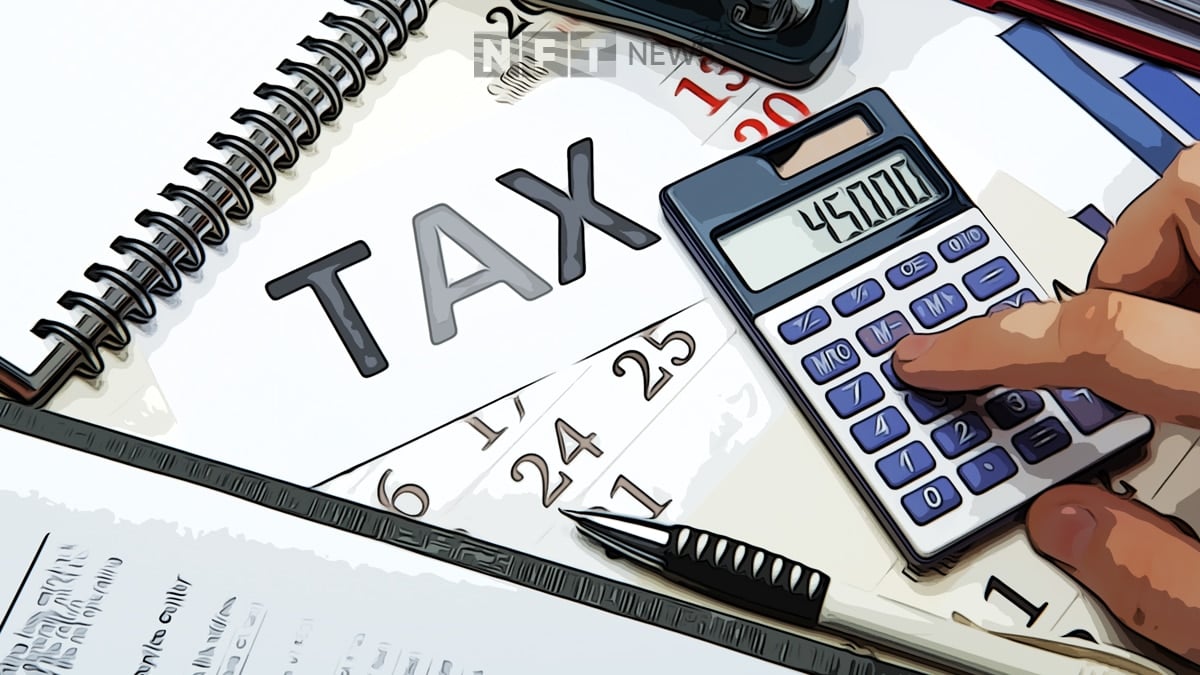The United States Internal Revenue Service (IRS) has updated its tax codes to include NFTs. The new Tax Guidance Drafts include terminology changes to asset classes from “virtual currency” to the more specific “digital assets.” Moreover, in the updated Form 1040, the IRS explicitly mentions NFTs. Read on to learn more about the new guidelines and what this would mean for NFTs in taxation terms.

What Are The Updated IRS NFT Tax Rules?
The updated NFT Tax forms from the IRS state that if any asset has the particular characteristics of a digital asset, it will be treated as such in accordance with federal income tax guidelines. The term “digital asset” here includes stablecoins, non-fungible tokens, and other cryptocurrencies. According to the IRS form 1040 draft released on October 17th, any person who has received, sold, or disposed of any digital assets in 2022 is liable to pay capital gains taxes on the actions.
Moreover, the rules also apply to anyone who has received the NFTs (or digital assets) as compensation for services provided. The IRS has replaced the previously vague “virtual currency” wording with the wider web3 “digital asset” class. The move also saw them categorize NFTs into “collectibles,” on which different tax rules apply (in comparison with stocks or bonds).
A tax rate of 28% applies to Collectibles, as compared to assets like stocks, bonds, or other crypto. The tax rate on other assets would fall between 0%, 15%, or 20% – depending on the seller’s income. Since cryptocurrencies are a global phenomenon, the tax rules may vary (or contain some modification) depending on location.
How Do The New Guidelines Make A Difference?
The new IRS Tax updates to NFTs clarify a long-standing confusion between digital asset holders. Around the world, the strengthening of tax rules around crypto ensures that the tax loopholes previously rigging the game now cease to exist.
These new changes around the crypto and NFT tax laws ensure smoother taxation processes in the space. As a result, legitimacy around the overall industry increases, becoming beneficial for the market. For more information, you can check the latest tax guidelines around NFTs on the latest IRS Draft.
All investment/financial opinions expressed by NFTevening.com are not recommendations.
This article is educational material.
As always, make your own research prior to making any kind of investment.
Read More: nftevening.com








 Bitcoin
Bitcoin  Ethereum
Ethereum  Tether
Tether  Solana
Solana  USDC
USDC  Lido Staked Ether
Lido Staked Ether  XRP
XRP  Toncoin
Toncoin  Dogecoin
Dogecoin  Cardano
Cardano  Shiba Inu
Shiba Inu  Avalanche
Avalanche  TRON
TRON  Wrapped Bitcoin
Wrapped Bitcoin  Polkadot
Polkadot  Chainlink
Chainlink  Bitcoin Cash
Bitcoin Cash  NEAR Protocol
NEAR Protocol  Polygon
Polygon  Litecoin
Litecoin  Internet Computer
Internet Computer  Uniswap
Uniswap  Fetch.ai
Fetch.ai  Dai
Dai  LEO Token
LEO Token  Ethereum Classic
Ethereum Classic  Pepe
Pepe  Hedera
Hedera  Render
Render  Aptos
Aptos  Wrapped eETH
Wrapped eETH  Immutable
Immutable  First Digital USD
First Digital USD  Cosmos Hub
Cosmos Hub  Cronos
Cronos  Filecoin
Filecoin  Mantle
Mantle  Arweave
Arweave  Stellar
Stellar  Renzo Restaked ETH
Renzo Restaked ETH  Stacks
Stacks  OKB
OKB  The Graph
The Graph  Optimism
Optimism  Arbitrum
Arbitrum  Maker
Maker  dogwifhat
dogwifhat